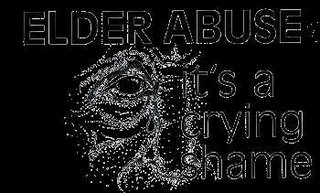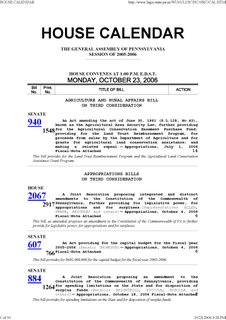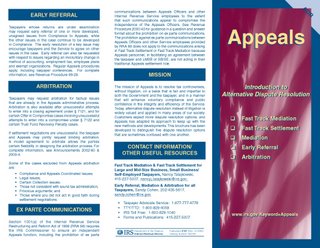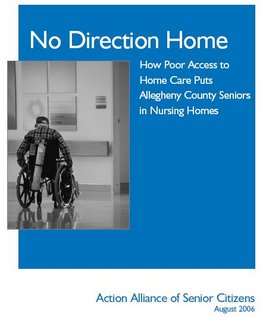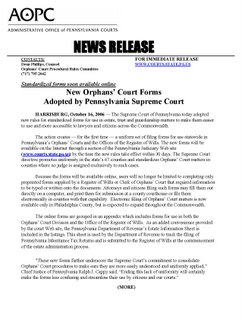Ornament (not Organ) Donations Sought

In a Press Release issued October 25, 2006, entitled "Senior Centers Asked to Create, Donate Ornaments for Capitol Christmas Tree", the Secretary of Aging, Nora Dowd Eisenhower, invited participants at the Commonwealth's 650 Senior Centers to donate ornaments for display on the Commonwealth's official holiday tree. The Press Release is found online here:The Capitol Christmas tree traditionally stands in the main Rotunda from early December through early January. * * *
A similar invitation was issued last year (on October 27, 2005) by the Secretary in a Press Release found here. She then said, "This annual tradition recognizes and celebrates the many creative talents of our state’s older adults." The result of last year's invitation was a spectacular tree, described in a Press Release from the First Lady of Pennsylvania (found here) as follows:
“Every year, we are delighted to receive the many beautiful ornaments that are donated by the talented members of Pennsylvania’s 650 full and part-time senior community centers,” said Secretary Dowd Eisenhower. “Last year, members of 48 centers donated more than 500 ornaments – a record response.”
Senior centers are asked to send sturdy, hand-made ornaments before Nov. 30, 2006.
The 23-foot Douglas Fir Tree that adorns the Capitol Rotunda was donated by the Botek family of Lehighton, in conjunction with the Pennsylvania Christmas Tree Growers’ Association. More than 1,000 handmade ornaments for the tree were donated by members of Senior Centers across Pennsylvania. * * *Regardless of the actual numbers of ornaments donated last year, it is clear that such creative activities and charitable spirits are commonplace at the Commonwealth's many full-time and part-time senior centers, described in my prior posting found here.
In addition to the Capitol Rotunda tree, other holiday symbols -- including a lit menorah outside of the East Wing Rotunda -- are present throughout the Capitol Complex. * * *
“Each year during the holiday season, all Pennsylvanians should focus on those who are less fortunate than we are, to donate their time and efforts to a local charity and to share in the warmth and joy that is prevalent during the holiday season,” Governor Rendell said.
Donations of ornaments should be sent to the following address:
Pennsylvania Department of AgingDonations of organs -- well, that is another matter. But, much like donated organs, the Press Release notes that: "Donated ornaments cannot be returned."
Attention: Anne Bale, Press Office
555 Walnut Street, 5th Floor
Harrisburg, PA 17101-1919
UPDATED 12/07/06:
The Commonwealth's Christmas Tree is up, decorated with the Seniors' handcrafted ornaments, & ready to be lit publicly by the Governor (on Monday, December 11, 2006).
See my posting made December 7, 2006: Seniors' Ornaments Decorate Tree.

